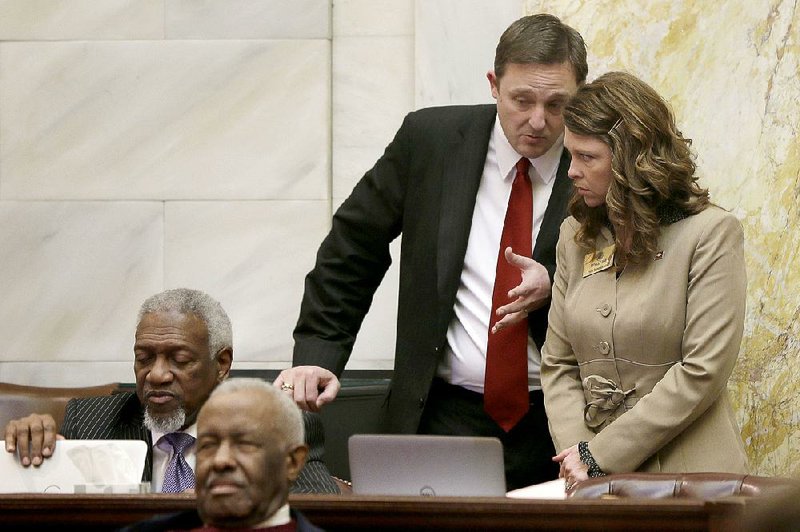Legislation to provide a funding stream for public-enrollment charter schools that need help building or renovating academic facilities cleared the Arkansas House of Representatives on Monday.
Senate Bill 789 by Sen. Jim Hendren, R-Sulphur Springs, passed the House 64-19 and heads to the governor's desk. The legislation clears the way for public-enrollment charter schools to receive existing General Improvement Fund money allocated during fiscal 2014.
"This does not take any money away from any traditional public school," said Rep. Bruce Cozart, R-Hot Springs, the chairman of the House Education Committee. "I want to stress that, even though we're getting an email that says that, it's not true. Traditional schools have received over $1 billion in facility funding. Charter schools have received zero dollars."
Currently, open-enrollment charter schools can apply for a facility-funding revolving loan, which is administered through the state Division of Public School Academic Facilities and Transportation. Under the program, the charter school has to repay that money to the revolving loan program.
SB789 allows the loan funding -- $5 million in general improvement funds set aside by former Gov. Mike Beebe and the Arkansas Legislature during the fiscal session -- to be awarded without requiring that it be paid back to the fund.
Rep. John Walker, D-Little Rock, asked whether the legislation would require money to be placed in the fund from the budget in the future and whether there would be accountability measures put in place to ensure the money was spent properly.
"Would there be any public accountability regarding these funds or the properties which they may be used to obtain?" he said.
Cozart said there was no line item for the program in the current budget proposal for fiscal 2016. The legislation allows private donors such as the Walton Family Foundation, which historically has supported charter school education, to donate money to continue the program. Several supporters have said they expect that to occur.
Cozart also said the accountability measures would be handled through the agency awarding the money to the charter schools. He said the public would not get a say in which charter schools receive money, much like they don't get a say in which public schools receive facilities funding.
Rep. Reginald Murdock, D-Marianna, said the bill didn't treat public charter schools the same as public schools, which he said have added scrutiny.
"What this bill does not do is it does not require that same type of scrutiny that public schools have to go through with their academic facilities' masters plan and things like that," he said. "My issue is not the funding, it is the way this bill is written. What the concern would be is these dollars could then be used for operations, for whatever you want to use it for, versus it being under code for academic facilities."
Rep. Bill Gossage, R-Ozark and a former public school superintendent, said he supported the bill because a generation of students has graduated from public charter schools but the schools have not received money to help with facilities.
"This has been an ongoing debate, not just this session, but for years," he said. "I asked for three things, and that is that this would not take money from traditional public school facilities, and this does not do that. I wanted to make sure that the facilities division would promulgate the rules for this and how the money would be used and how it would be handed out; that's in the bill. I also wanted to make sure that they had to meet all codes: fire codes, health codes, safety codes and ADA requirements. This bill requires that they do that."
Metro on 03/24/2015

